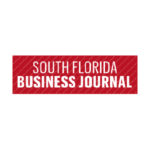As the Fed continues raising rates, middle-market business owners should begin preparing their businesses
By James S. Cassel

As the Federal Reserve continues to raise interest rates in today’s strong economy, middle-market business owners should keep a watchful eye on the economic and political developments during the next 18 months and beyond and take the necessary steps to best position their businesses. The key question is for what. Will it be a recession?
So much of government money is currently being spent on non-discretionary items. Defense, entitlements and interest payments on the national debt are examples. This type of spending will further tighten the squeeze on our government and cause potential problems for continued funding of such discretionary items as healthcare, infrastructure improvement and education. Very few are focusing on the deficit spending and the growing national debt.
While the jury is still out on whether we will see a recession in 2019 or 2020, the government will ultimately need more revenue unless spending is reduced. As a result, the government will have no choice but to raise taxes and/or cut expenses. It does not seem that the present growth in GDP will be sufficient to bridge the gap with increased revenues. It will be tough and overdue for the politicians to address these issues.
It appears the Fed will raise rates one more time this year. Despite today’s historically low rates, people will start to see the effects of this plus the prior rate increases in the form of higher borrowing costs. Americans, except those with substantial cash savings, will feel their spending power begin to diminish. Making matters worse, we have recently seen a spike in energy prices.
Another issue: tariffs and the trade war. While they do not seem to be hurting most people yet, they too are likely to have a negative impact on Americans by causing prices to increase on affected imported items, as well as goods that require affected foreign components or materials to produce. This will cause an increase in the inflation rate. According to recent news reports, polls show that large numbers of voters nationally and in key midterm states think tariffs will do more harm than good.
So, considering all this, what should middle-market business owners be thinking about and doing? For starters, they should closely reevaluate all areas of their businesses to confirm what expenses are necessary, look at efficiencies and determine how to protect their best interests. Expert guidance from trusted professionals, including accountants and consultants with proven experience, is always helpful and important to ensure the best outcomes.
Here is some general guidance and insight based on our experience working with middle-market business owners in all types of economic cycles:
- Hiring. No matter how much you may think you need to hire, you might be overlooking ways to work more efficiently and minimize the expense of adding new employees. Consider more flexible hiring in terms of temporary staffing so you can stay nimble as you watch how things play out in the coming months. Be careful not to over hire. When managed correctly, paid internship programs, particularly those involving partnerships with local universities, are a great way for business owners to address certain business needs while also cultivating new talent and potential hires.
- Capital expenses. As it pertains to capital expenses, such as purchasing new capital equipment, consider whether you are buying to support expansion or increase efficiency. Buying more efficient equipment can increase productivity while effectively reducing costs. Unless you have significant certainty, do not risk over committing your business.
- Borrowing costs. Evaluate your borrowing costs and lock in any variable interest rates that you can. Certainty has benefits. If you have excess cash, it may be a good time to pay down some of your debt.
- Manufacturing, supply chain and resource costs. If you believe tariffs will increase your costs, look for alternative supply sources and try to lock them up.
- If things start to deteriorate, seek help fast. Do not wait. Time is not you friend.
- A good consultant or investment banker can be a savior of your value.
Middle-market business owners who keep a close pulse on these issues and take the right steps will best position their businesses in the near and long term.
James S. Cassel is co-founder and chairman of Cassel Salpeter & Co., LLC, an investment-banking firm with headquarters in Miami that works with middle- market companies. He may be reached at jcassel@casselsalpeter.com or via LinkedIn at https://www.linkedin.com/in/jamesscassel.
Click here to view the original article.



